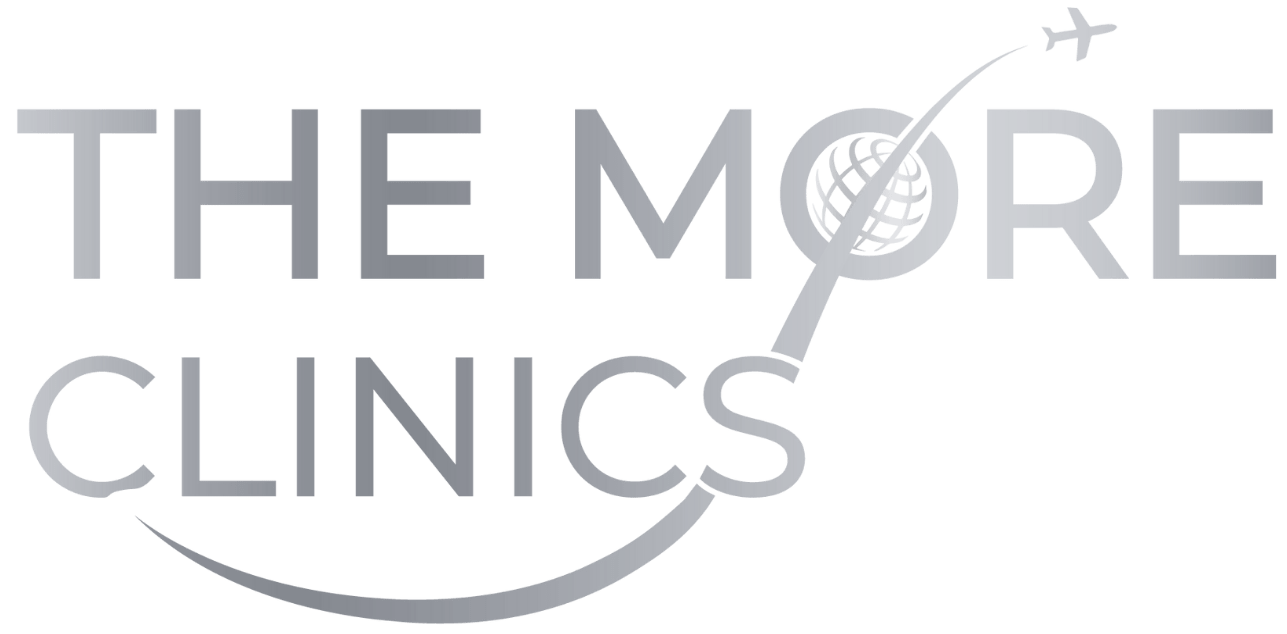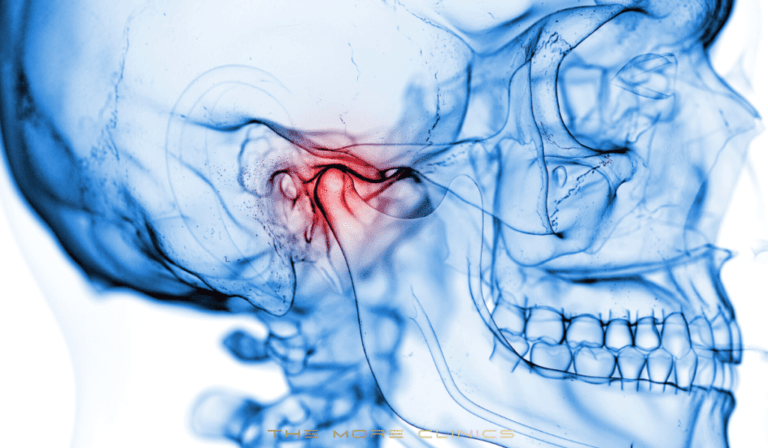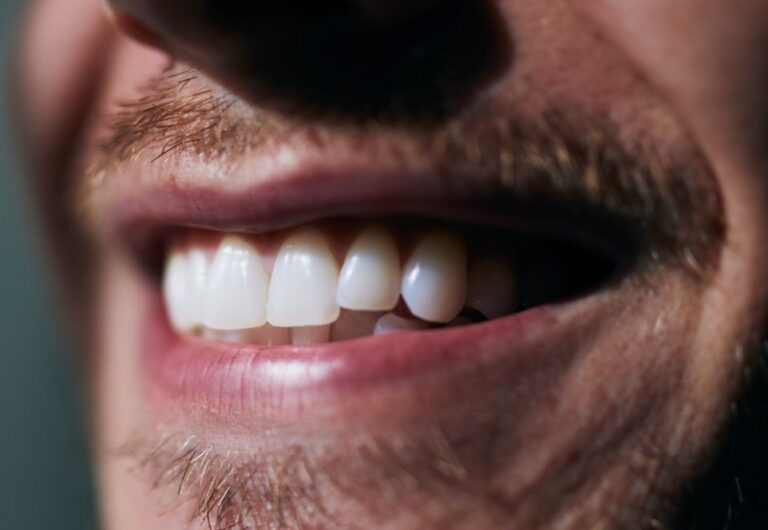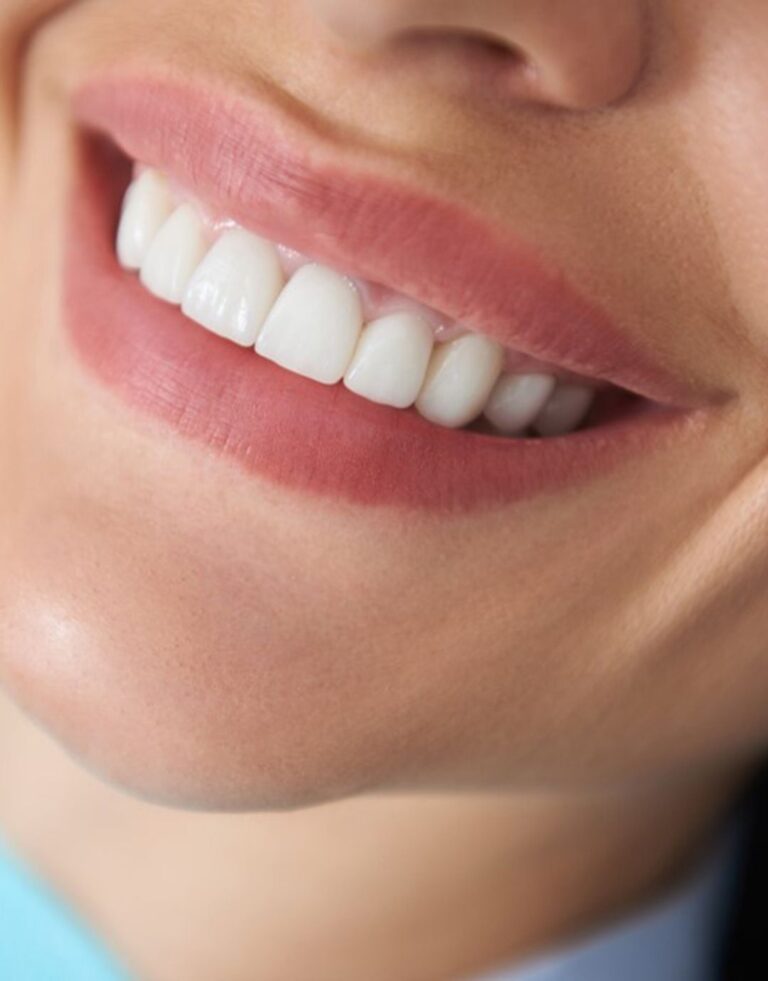Missing Teeth Replacement: All You Need to Know
A missing tooth can be a distressing experience, impacting both your oral health and self-confidence. Having missing teeth is something common. Studies show that %52 of American adults has at least one missing tooth and %92 of adults in England have full set of teeth.
Underlying reason of missing tooth can be a gum disease, tooth decay, genetic or an accident. Fortunately, no matter what the cause is, missing teeth can be replaced with a range of options available. In this blog, we will discuss causes, impact, treatment options with cons and pros, costs and all details: let’s dive into it!

Missing Tooth
Missing teeth, also known as edentulism, refer to the condition in which one or more teeth are absent from the mouth. There are different types of missing teeth scenarios, including:
- Single Missing Tooth: When a single tooth is absent, leaving a gap in the dental arch.
- Multiple Missing Teeth: When two or more adjacent teeth are missing, creating larger gaps.
- Complete Tooth Loss: When all teeth are missing in one or both arches of the mouth.
Causes: What Are the Reasons for Missing Teeth?
Several factors can contribute to missing teeth, including:
- Genetic Factors: Certain genetic conditions, such as tooth agenesis, may result in the absence of secondary teeth. This congenital malformation can be associated with conditions such as cleft palate and lip and Down syndrome. There are three types of congenitally missing teeth, as explained by the National Organization for Rare Disorders: Hypodontia: This is the most common form of tooth agenesis, where one to five adult teeth never form after the primary ones fall out. Oligodontia: In cases of oligodontia, six or more teeth are absent due to agenesis. Anodontia: complete absence of a set of secondary teeth, meaning they never develop at all.
- Gum Disease (Periodontal Disease): Gum diseases can contribute significantly to tooth loss. They come in two primary forms: gingivitis and periodontitis.
- Gingivitis is the initial stage of gum disease, characterized by inflamed and red gums that may bleed when you brush or floss. This condition is primarily caused by plaque that forms on your teeth due to poor oral hygiene practices. Gingivitis is usually reversible with good oral hygiene and regular dental cleanings.
- Periodontitis is the advanced stage of gum disease that can lead to tooth loss if left untreated. It involves not just the gums but also the bone that supports your teeth. In periodontitis, the gums pull away from the teeth, forming pockets that become infected. As the disease progresses, the pockets deepen further, which can lead to the bone and connective tissue that hold teeth in place being broken down. If not treated, the teeth may eventually become loose and have to be removed.
- Dental trauma or injury: Accidents or injuries can cause teeth to be lost unexpectedly. Physical trauma to the mouth, such as a sharp blow from a sports injury or an accident, can dislodge teeth. In some situations, the damaged teeth could be replanted.
Other factors:
- Severe tooth decay
- Nutrition
- lack or no access to dental care
- Poor oral and dental hygiene
- Age-related tooth loss
- Smoking
Some diseases are also linked to missing teeth. Several health conditions have been found to be linked with missing teeth. These include:
- Diabetes: Poor oral health can contribute to the onset of diabetes and conversely, diabetes increases the risk of tooth loss.
- Heart Disease: Studies have shown a direct correlation between tooth loss and heart disease. The bacteria from the inflamed gums and periodontal disease can enter your bloodstream and travel to the arteries in the heart, leading to atherosclerosis (hardening of the arteries).
- Asthma: Inflamed airways making it difficult to breathe can increase the risk of gum disease, contributing to tooth loss.
- Emphysema: This lung disease can cause a dry mouth, which may lead to gum disease and ultimately tooth loss.
- Liver Problems: Certain liver diseases can impact oral health, leading to a higher risk of tooth loss.
- Rheumatoid Arthritis (RA): This autoimmune disease affecting the joints has been linked to an increased risk of periodontal disease and tooth loss.
- Stroke: A disruption of blood flow to the brain, or stroke, has been associated with periodontal disease. Studies suggest that the inflammation and infections caused by oral bacteria can increase the likelihood of stroke.
Impact of Missing Teeth
What if you don’t replace the missing tooth? Missing teeth can have a significant impact on your oral health and overall wellbeing. The consequences of edentulism include:
- Lower self-esteem due to the gaps in your smile;
- Difficulty speaking, chewing, and swallowing (insufficient nutrition due to poorly chewed food);
- An altered bite leading to jaw pain and temporomandibular joint disorder (TMJ);adjacent teeth may start to move into the gap, throwing your bite off balance;
- Loss of jawbone: The tooth roots no longer stimulate the bone, which can lead to a decrease in bone density, which can cause further tooth loss.
- Dental misalignment leading to an increased risk of tooth decay and gum disease;
- Shifting teeth due to the missing tooth/teeth, which can lead to further dental problems such as cavities or periodontal disease.
Missing Tooth Replacement Options
In the face of missing teeth, it’s essential to remember that you’re not alone and there are effective solutions available. Let’s dive into these treatments ( as well as the pros and cons) geared towards giving you back your confident smile and ensuring optimum oral health.
Here are some common treatments to consider:
1. Dental Implants
Dental implants are considered the gold standard for replacing missing teeth. They are titanium posts surgically placed into the jawbone, acting as artificial tooth roots. Implants provide a stable foundation for the attachment of custom-made dental crowns, resulting in a natural-looking and functioning replacement tooth. More information : Dental Implant Guide.
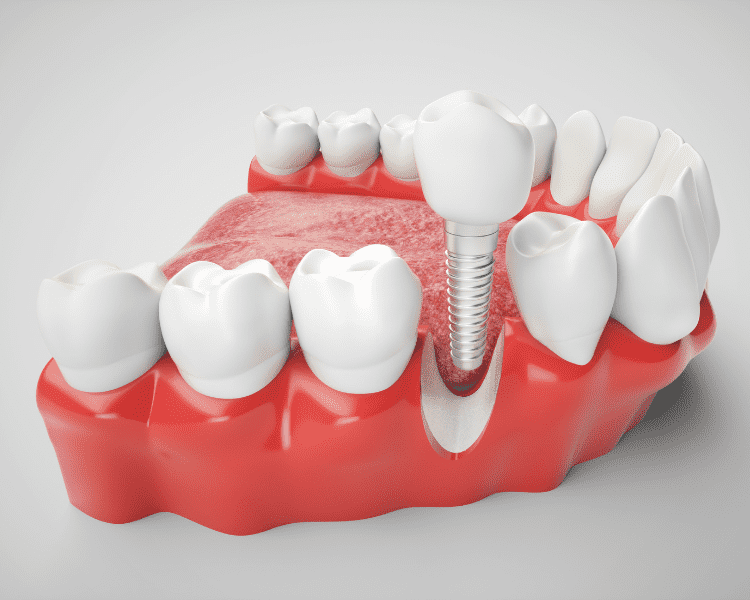
Pros and Cons of Dental implants:
- Pros: Dental implants are longest lasting solution to replace a missing tooth. They also look and feel like your natural teeth, unlike other options like dentures. You don’t need to sacrifice neighbour tooth unlike bridges and they are easy to maintain, just like regular teeth.
- Cons: They usually require a surgical procedure to place them, which takes multiple visits (healing and osseointegration period). Plus, you should be a good candidate for surgery. There will be gap till dentist attach the crown. It’s expensive and time consuming (but it’s worth it). It’s expensive but there are cheaper options which we will talk in costs.
2. Dental Bridges
Dental bridges are fixed prosthetic devices that are used to “bridge” the gap created by missing teeth. They consist of one or more artificial teeth (pontics) that are held in place by dental crowns on adjacent healthy teeth. Bridges offer a non-removable solution for replacing missing teeth.
Pros and Cons of Dental Bridge:
- Pros: They look and feel natural, easy to maintain and relatively less expensive than Dental implants.
- Cons: Requires sacrificing your adjacent teeth. Plus, it requires more extensive dental work in comparison to dentures, which means higher cost. Bridges may not last as long as implants since they are attached to the adjacent teeth.
3. Removable Dentures (Partial or Full)
Dentures are removable appliances used to replace multiple or all missing teeth.
Partial dentures replace a few missing teeth and are supported by surrounding teeth, while full dentures are used when all teeth in an arch are missing.
Modern dentures are designed to be more comfortable and natural-looking than ever before.
Pros and Cons of Dentures:
- Pros: They are cost-effective and easy to maintain.
- Cons: not as comfortable as implants or bridges, can be unstable when eating certain foods, and need frequent adjustment due to changes in the jawbone over time.
Additional Options to Replace Missing Teeth
Full Mouth Reconstruction with Dental Implants
In cases of extensive tooth loss or severe dental issues, full mouth reconstruction may be necessary. This comprehensive treatment plan combines various restorative procedures like dental implants, bridges, dentures, and other treatments to restore the entire mouth’s function and aesthetics.
Most popular ones are All on 4 and All on 6 dental implants for full mouth missing teeth replacement.
Dental Braces
Dental braces can be the first step for replacing missing teeth. For individuals with missing teeth and misalignment issues, orthodontic treatment with braces may be recommended. Braces can help align teeth properly, creating space for future tooth replacement options like dental implants or bridges.
Cost of Missing Teeth Replacement
The cost of missing teeth replacement varies depending on factors such as the chosen procedure, the number of missing teeth, and individual treatment plans.
- Example study of one tooth replacement cost in the USA (implant option):
- Dental Implant cost in Usa ranges from $3,000–$6,000.
- Abutment mostly included in the price of implant.
- Dental Crown (Zirconium) cost in the Usa ranges from $900–$1,500
Total average cost : $4,000–$8,000.
- Example study of one tooth replacement cost in the UK(implant option):
- Dental Implant cost in UK ranges from £2,200–£4,000.
- Abutment mostly included in the price of implant.
- Dental Crown (Zirconium) cost in the Usa ranges from £900–£1,200
Total average cost : £3,100–£6,000.
Comparison of Options to Replace Missing Tooth
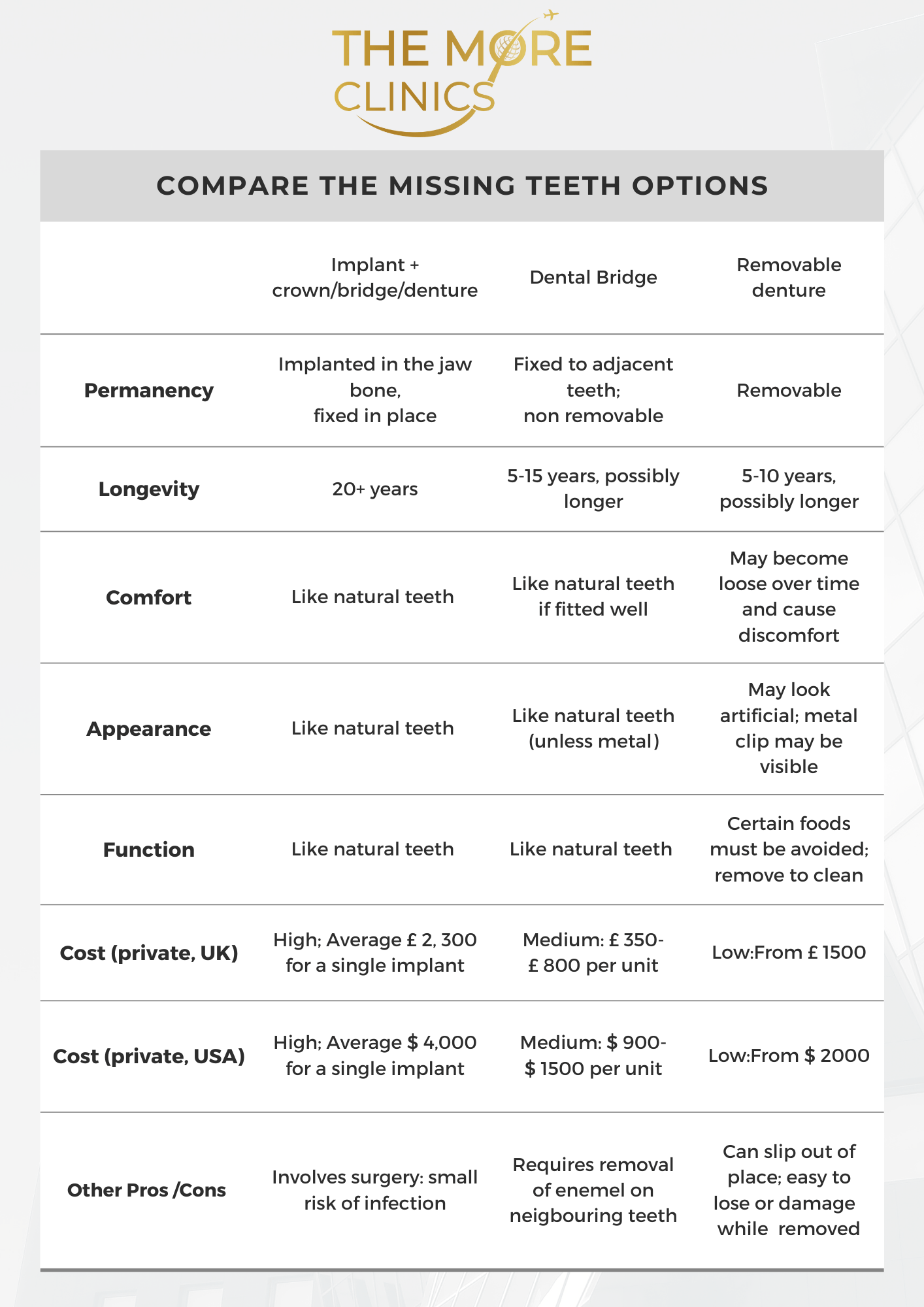
Cheaper options to Replace the Missing Teeth
While the costs for tooth replacement options in the USA and UK can be significantly high, countries like Turkey offer more cost-effective solutions without compromising on quality.
Patients can save up to 70-80% on their dental costs. For instance, the average cost of Dental Implants in Turkey ranges from $500-$1000, which is noticeably cheaper than in the USA or UK.
Turkey has emerged as a popular destination for dental and health tourism, attracting patients from across the globe. This is largely due to the country’s high standards of medical care, coupled with affordability. The dental practitioners in Turkey are highly trained and often have international qualifications, ensuring a level of expertise comparable to their counterparts in the USA and UK.
This unique blend of medical excellence and remarkable tourism experiences contributes to the rising popularity of dental and health tourism in Turkey.
Last Words from the More Clinics
Replacing missing teeth is essential for maintaining oral health and overall well-being. The common options include dental implants, bridges, and dentures, each with their unique advantages and drawbacks. The costs of these procedures can vary greatly, with countries like Turkey offering more affordable solutions without sacrificing quality.
Your Trusted Dental and Health Partner: The More Clinics
At The More Clinics, we are committed to providing exceptional dental care and helping all global patients regain their smiles and confidence. With expertise, state-of-the-art technology, and compassionate approach, we are your trusted partner in achieving a complete and natural-looking smile.
Contact us today to schedule a free consultation and discuss the best missing teeth replacement options for you. Our dental and health professionals are ready to answer all your questions and provide you with the most suitable solution.
Let The More Clinics help you get back your natural, healthy smile again!
GET A FREE CONSULTATION!
Let’s Start Planning Your Treatment %100 Guarantee Results.

Medically Reviewed by Mehmet Can Kılınçaslan who specialized on Periodontology and Implantology
